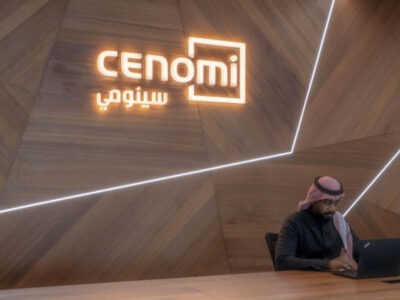Businesses in the region owe it to the community to create jobs, according to Souq.com co-founder and CEO Ronaldo Mouchawar.
Speaking at the Arabian Business Start Up Academy, Mouchawar said his social responsibility is to create work opportunities for young people in the Middle East, where unemployment is at 30-40 percent.
Souq, the largest e-commerce website in the region, was acquired by global online retailer Amazon for almost $600m last year. It acts as a marketplace for small businesses, allowing them to sell on the platform.
“We owe it to us to stay in the region and continue to create jobs. Part of Amazon entering and acquiring Souq was to grow the ecosystem to create more jobs. We have already hired tons of people in many of our markets.
“We’re super committed to the region. Even post the Maktoob exit, [co-founder] Sameeh [Toukan], myself, we stayed in the region. We invested in more companies in the region. We know the journey is hard and it takes seven to eight or 10 years, maybe even longer, because our markets are fragmented, but you have to have perseverance,” said Mouchawar, who also acquired a number of companies including grocery app InstaShop and logistics firm Wing.
While the CEO believes more opportunities are coming to the Middle East, he claims people do not pay enough attention to skills needed in the market.
“I see many engineers but they do not understand, for example, mobile development. We need android development. That’s where all the customers are. There is some skill set gap,” he said.
Mouchawar added that there needs to be more cooperation between businesses and academic institutions in order to lower the rate of joblessness among university graduates.
“What has been successful abroad, and we’re not there yet, but I think that’s the next step, is that many universities work with the companies. When I went to school in Boston, I was working with a famous camera company, and my function was to create the digital imaging for them. They sponsored our research and they were part of the graduate program. We [in the Middle East are] not there yet. A. We don’t have enough technology companies to require that, but I think we’re seeing more of that. Getting academia, research and business that are tech oriented to grow closer together will change that,” he said, urging businesses to reach out to universities.
“There aren’t that many graduate programs working with us. We do hire the brightest across different universities but that interaction with academia to develop that the problems they are working on are technical, relevant to the region, at the right time, is still not there. This is why US universities at the graduate level have always outperformed many and they are in the top,” he said.
Mouchawar said a collaboration between businesses and academic institutions will cut unemployment among graduates by providing them with the skills the job market needs today, and that it is up to businesses to make the first move towards that partnership seen in countries such as the US.
“We owe it, as businesses, to reach out. I don’t think [academic institutions] would reach out. The professors may not know what to do. They may not know what we need, so we should reach out more,” he said.








